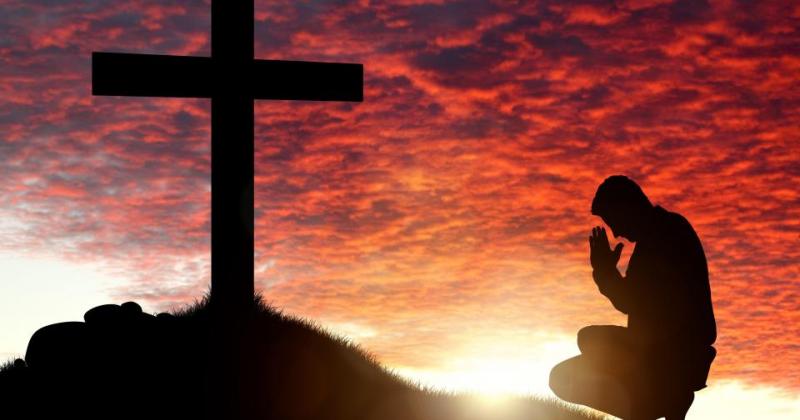As eighteenth century English writer Samuel Johnson might have put it, “Nothing concentrates the mind like knowing that I am dust, and to dust I shall return.” And nothing is a more bracing reminder of that reality than the imposition of ashes on Ash Wednesday. Placed on the forehead in the form of the cross, the ashes symbolize the Great Paradox: to live, I must die.
Lent
The Ash Wednesday Rite marks the beginning of the forty-day process from mortification to renewal through the Lenten practices of self-examination, repentance, and spiritual discipline. Although the extent of this process for most early Christians was limited to Holy Week, the current period can be traced to St. Athanasius in the early fourth century based on a rich biblical tradition:
Noah spent 40 days on the ark
Moses sojourned 40 days on Mt. Sinai
The people of Nineveh fasted 40 days after receiving Jonah’s message
Elijah traveled 40 days to Mt. Horeb
Jesus spent 40 days in desert
In each case, the period of self-denial and deprivation was the means to a higher end than relief from want and need:
On the ark, Noah was preparing to replenish the earth
On Mt. Sinai, Moses was being groomed to lead the Israelites
In Nineveh, the people were making ready for the greatest pagan revival in history
On the road to Horeb, Elijah was preparing to meet God for a mission
In the desert, Jesus was preparing for his earthly ministry (after his resurrection, he spent 40 days preparing his disciples for Pentecost and the Great Commission).
In the early Church, catechumens who had completed a three-year period of catechesis underwent the forty-day period leading up to Holy week in preparation for baptism and their new life in Christ.
Lent, then, following the pattern of Scripture and early Church tradition, is a period of preparation that looks beyond a one-time event or annual observance to a calling and ministry. Accordingly, we should approach Lent, not just as a time of spiritual reflection and refinement preparing us for Easter, but for our life-long role in making the invisible kingdom visible. And that gets us back to the Great Paradox.
The Great Paradox
As Webster defines it, a paradox is “a statement that is seemingly contradictory … and yet is possibly true.” Some popular examples include,
You have to spend money to make money.
To be a good leader, you need to be a good follower.
The only thing I know for sure is that I know nothing.
In the Bible, many of Jesus’s teachings are punctuated with paradoxes, like:
It is more blessed to give than receive.
If you want to be wise, you must be a fool.
To be first, you have to be last.
To be great, you must be a slave.
In the Sermon on the Mount, Jesus informs his disciples that their life in him will lead to the “little deaths” of hunger, thirst, and persecutions. Later, predicting his own death, Jesus tells them, “I tell you the truth, unless a kernel of wheat falls to the ground and dies, it remains only a single seed. But if it dies, it produces many seeds.” Then, turning the application to them, adds, “The man who loves his life will lose it, while the man who hates his life in this world will keep it for eternal life.”
The Great Paradox is Jesus’s invitation to his disciples and us to come and die and, in dying, enter the life that is truly life. It is a reality that St. Paul understood well. Having undergone hunger, thirst, beatings, floggings, shipwrecks, and imprisonments, Paul could say, without hyperbole, “I die every day.”
Embracing the Paradox
Well, so much for Jesus, his disciples, and Paul, but how about me? How do I go about dying? The Lenten practice of fasting, patterned after Jesus’s example in the desert, certainly comes to mind. But I also die a “little death” every time I…
Apologize, ask forgiveness, and admit I’m wrong when I’m wrong, instead of trying to justify myself to maintain my pride, reputation, and dignity.
Pray for the person who insulted or hurt me and initiate reconciliation, instead of stewing, clinging to my offense and looking to get even.
Wash the dishes, vacuum the house, or work on the home project for my wife when I’d rather watch the ball game or play golf.
Give my time, treasure, and talents in service of God and others.
Considering first things—union with God—I undergo a little death, when I…
Get up 30 minutes earlier in the morning for devotions, study, and contemplative prayer.
Turn off the car radio and spend the commute time to work in intercessory prayer and meditation on the sacred mysteries.
Ask someone to be a mentor, soul friend, or accountability partner; offer to be one to someone else.
Allow another person into the interior of my life, being open, honest, and transparent about my struggles, hopes, doubts, and fears.
Or, taking a more comprehensive approach, I experience an ongoing death when I take custody of my spiritual growth and submit to a rule of life, under a spiritual director, that conditions my heart and will to the rhythms of God, rather than to the siren call of culture. Such is an intentional process that involves a personal spiritual assessment to determine my need to plan and pattern a spiritual life tailored to help me better conform to the Divine life.
Are these things hard, inconvenient, and uncomfortable? You’re darn right they are! How could they be anything but? What do we think Christ meant when he said that we need to take up our cross?
What he meant, was that union with him is not the product of chance, good intentions, or wishful thinking; but of the Great Paradox, a death that leads to life.
